The Coronavirus Climate Profiteers
... and the Climate Heroes Doing the Right Thing in a Time of Crisis
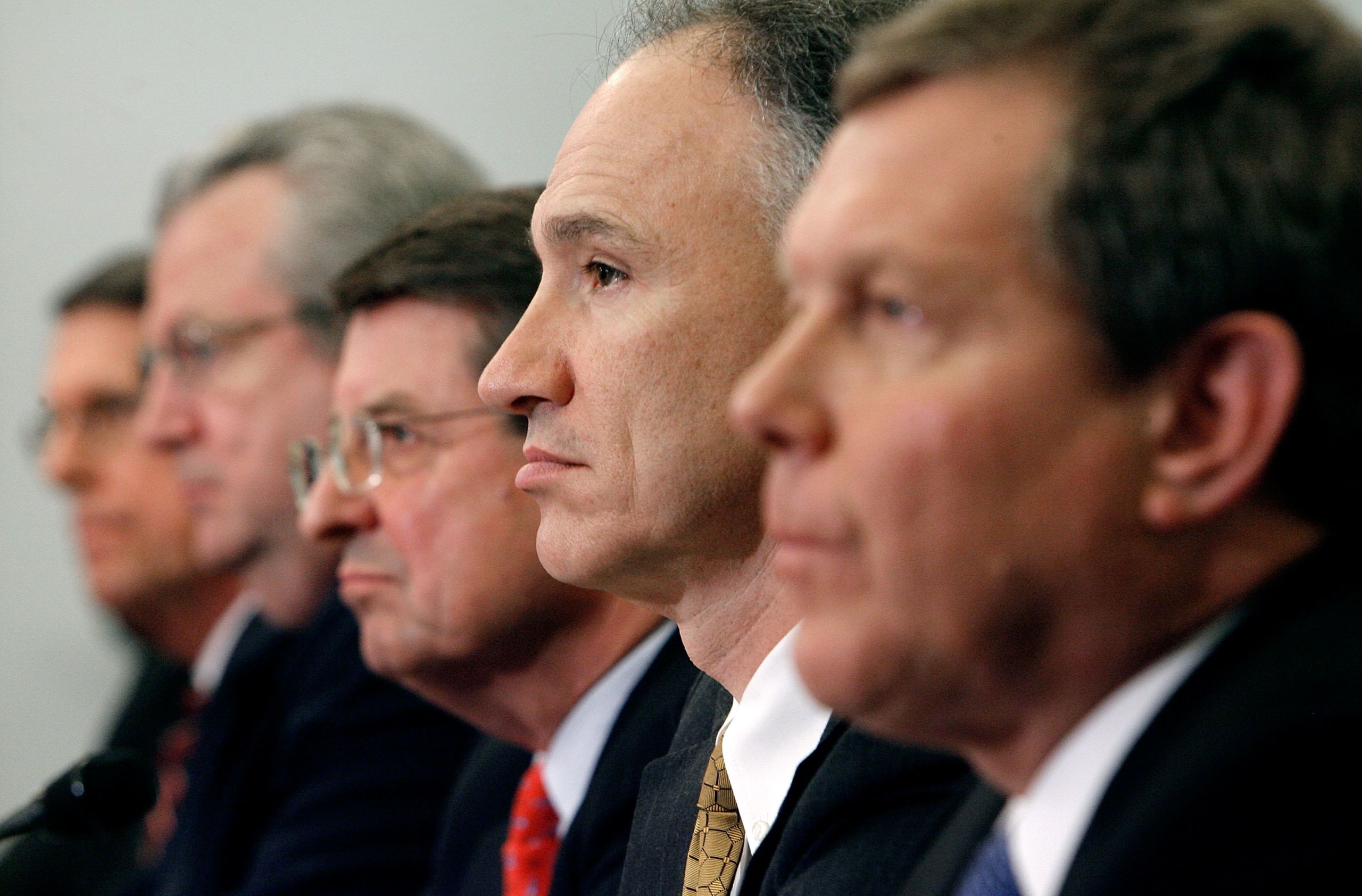
Most people see a global pandemic that is killing tens of thousands of people. But many of the world’s worst polluting companies have used the crisis as an excuse to extract tens of billions of dollars in new government subsidies and slash environmental regulations. They are doing so in ways that will make people more vulnerable to coronavirus and increase the likelihood of future pandemics. A lot of people are understandably furious about small-time coronavirus grifters, like the guy hoarding Purell in his garage. That’s bad, but it’s nothing compared to the cynicism and public health hazards created by leading coronavirus profiteers and their enablers.
Not every company is engaging in this kind of behavior. Businesses large and small are stretching to provide essential services, or just doing their utmost to make sure their employees have some support. And as we highlight below, there are responsible corporations that see the continued urgency of protecting the environment – especially during this time of crisis, and are either continuing their efforts or doubling down. That’s particularly true of the handful of corporations we highlight below that may not be perfect, but are taking action in ways that can help prevent future pandemics by reducing the deforestation that exposes humans to new viruses.
Meat and Biofuel Industries
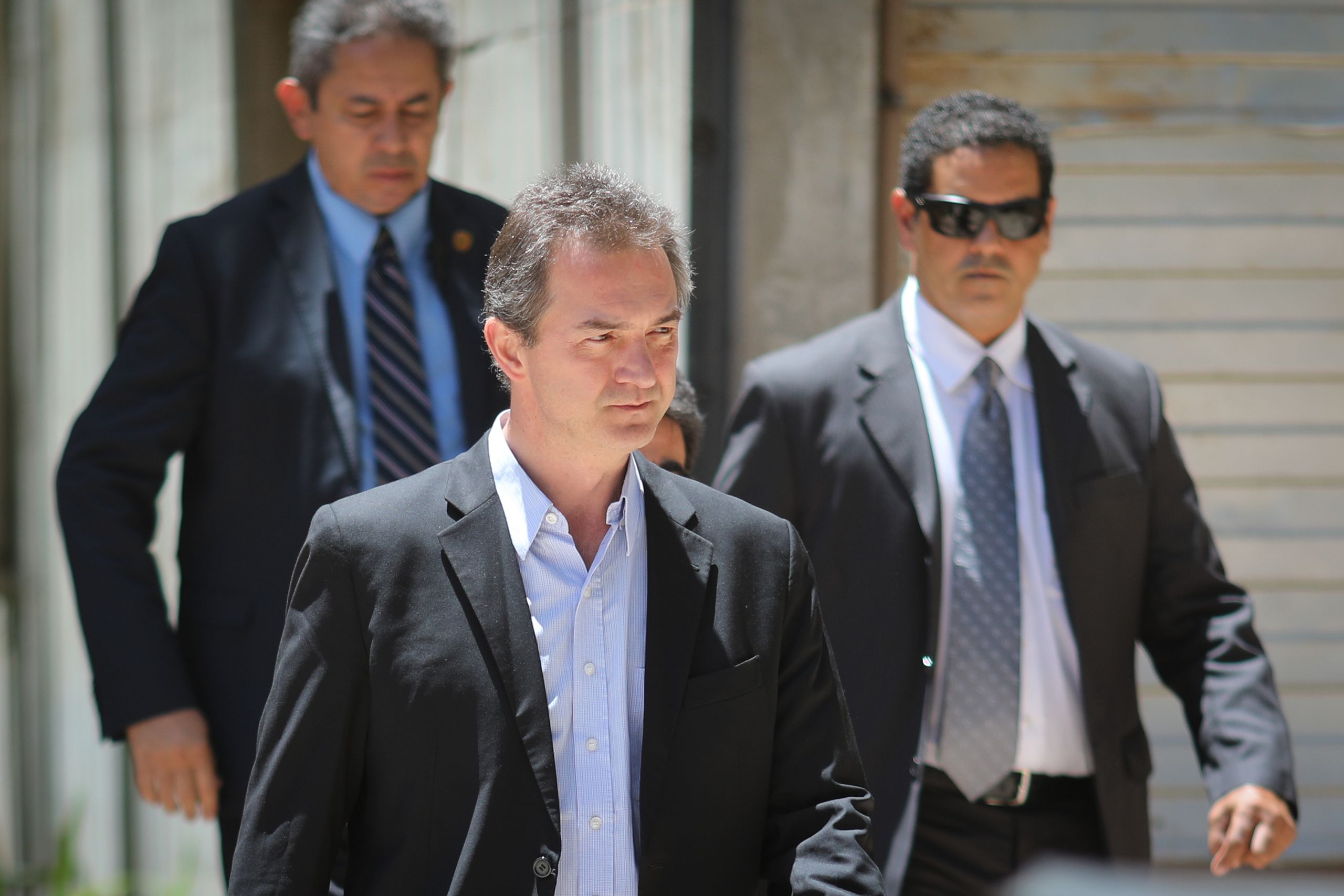
The meat industry has been one of the biggest beneficiaries of subsidies in recent years, even as it pollutes America’s waterways and continues to drive large-scale deforestation for cattle and animal feed in South America. Agricultural interests received $30 billion in trade assistance subsidies in the last two years, including $67 million for JBS, the largest cattle company in the world, the single company most linked to Brazilian deforestation, and one of the worst polluters of U.S. waterways.
Nonetheless, they lobbied for massive additional subsidies free from conditions. The American Farm Bureau Federation and the National Cattlemen’s Beef Association lobbied heavily for the inclusion of $23.5 billion in a slush fund that Trump Agriculture Secretary Sonny Perdue can use with almost unlimited discretion to funnel money to agricultural interests.
Overall, the stimulus doesn’t include sufficient safeguards to ensure that companies like these aren’t able to use these funds to prop up business as usual. These tens of billions of dollars in subsidies for agricultural interests come on top of climate-busting ethanol and biodiesel mandates and tax credits that lock in fuels that can cause at least as much environmental damage oil and gas. In December, 2019, for instance, Congress passed a $15 billion tax credit for producers of industrial soy biodiesel.
By supporting companies like JBS, the stimulus threatens to subsidize deforestation far from America’s borders, deforestation that can increase death rates from coronavirus (see below). Indeed, just released data from the Brazilian space institute INPE shows that despite the coronavirus crisis, cattle, animal feed, and logging interests have actually accelerated deforestation in the Brazilian Amazon to the highest level in more than a decade. The rise comes as Brazilian law enforcement, already weakened by rollbacks from President Jair Bolsonaro, have scaled back enforcement due to the coronavirus crisis.
The burning of rainforests linked to meat production can pour massive amounts of haze into the air, which on its own threatens health. Last year’s Amazon fires crisis caused a spike in hospitalizations. Harvard studies found that haze from deforestation-linked fires in 2015 cut short the lives of 100,000 people. In the context of the coronavirus, those impacts are expected to be worse: according to a new Harvard study, even relatively modest levels of air pollution can increase death rates from the coronavirus.
Instead of funneling further support to this industrial agricultural system, Mighty Earth has called for a Green New Deal that provides support to rural communities through funding that protects prairies, cleans up the water, and helps smaller scale farmers develop sustainable production.
Auto Industry
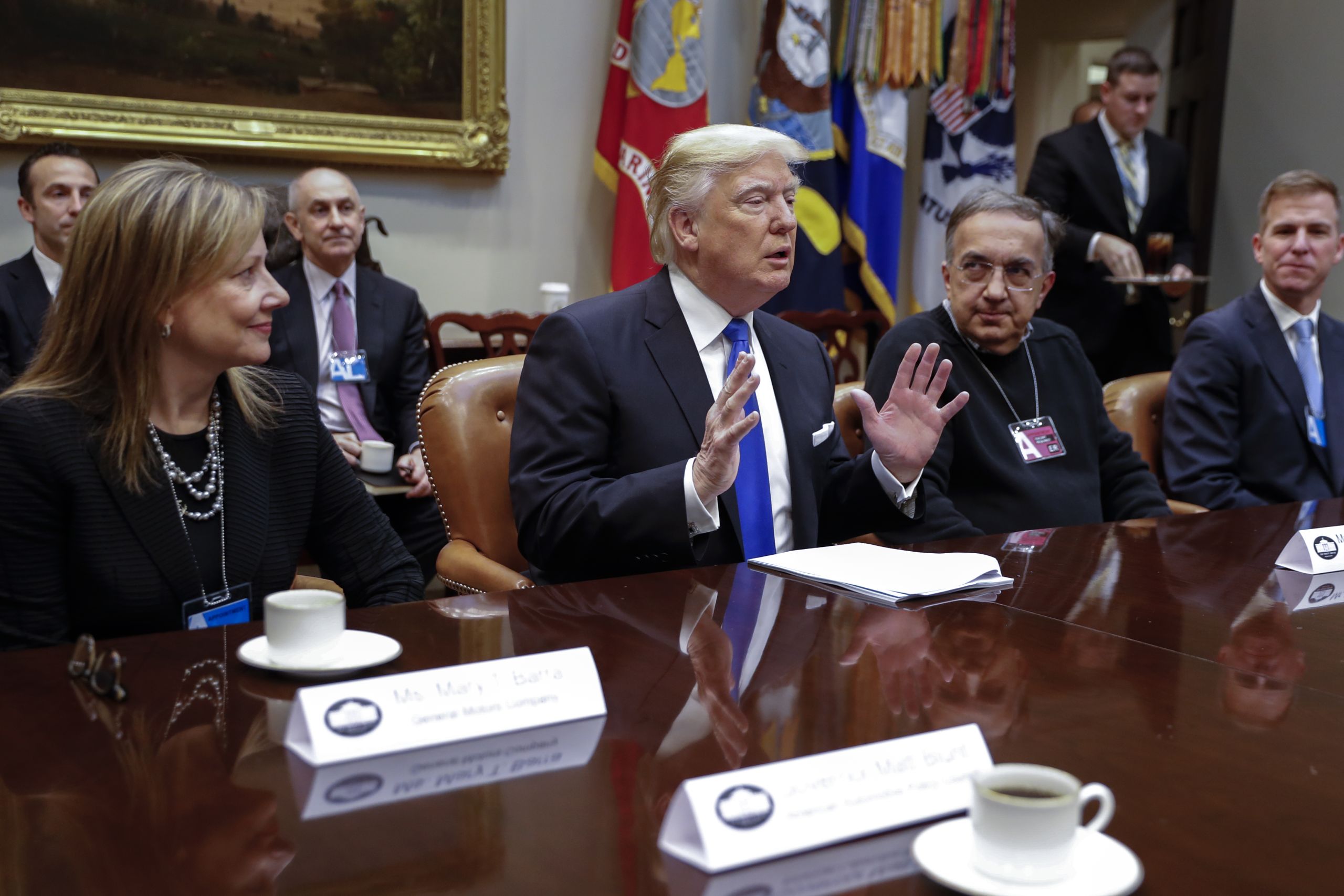
Around the world, many automakers are cynically attempting to use the coronavirus crisis as an excuse to weaken long-term compliance with environmental protections. Most egregiously, the Trump administration has used the cover of the coronavirus to announce that it is gutting President Obama’s most important climate legacy, stronger fuel efficiency standards for cars and trucks that would have prevented 1.5 billion metric tons of pollution from entering the atmosphere.
GM, Toyota, and Daimler have used their industry lobbyists to provide cover, worsening smog and costing drivers thousands of dollars extra per car. Their actions came even though the industry had agreed to accept the higher standards as a condition of being bailed out by U.S. taxpayers in 2009.
“It’s shameful that auto companies like GM and Toyota have violated the spirit of this deal through their complicity in the gutting of this critical environmental and public health policy, and they should be held accountable."
Instead of adhering to the spirit of the deal, Detroit automakers are planning to ramp up production of ultra-polluting SUVs. As a result, despite a lot of green marketing, in 2026 the Detroit automakers combined will produce fewer electric vehicles than Tesla alone did last year. The industry is trying to play the same game in Europe, even though electric vehicle sales are soaring on the continent. 7 and 9 percent of cars sold in Germany and France respectively in February were electric, with similar growth elsewhere. With these gains, and strong EU policy, European carmakers are on track to achieve dramatic reductions in pollution.
But in a letter to EU policymakers, lobbyists for Daimler and Renault said that the coronavirus “upsets the plans we had made to prepare ourselves for complying with existing and future EU laws and regulations…” — in other words, according to media sources, they’re using coronavirus to ask for weakening 2020 and 2030 climate goals, so they can produce and market more polluting vehicles. Across the board, pollution (much like smoking) exacerbates the impacts of the coronavirus and other respiratory disease – which means that automakers and other polluters seeking to take advantage of this crisis are putting untold numbers of peoples’ lives at additional risk.
Airlines
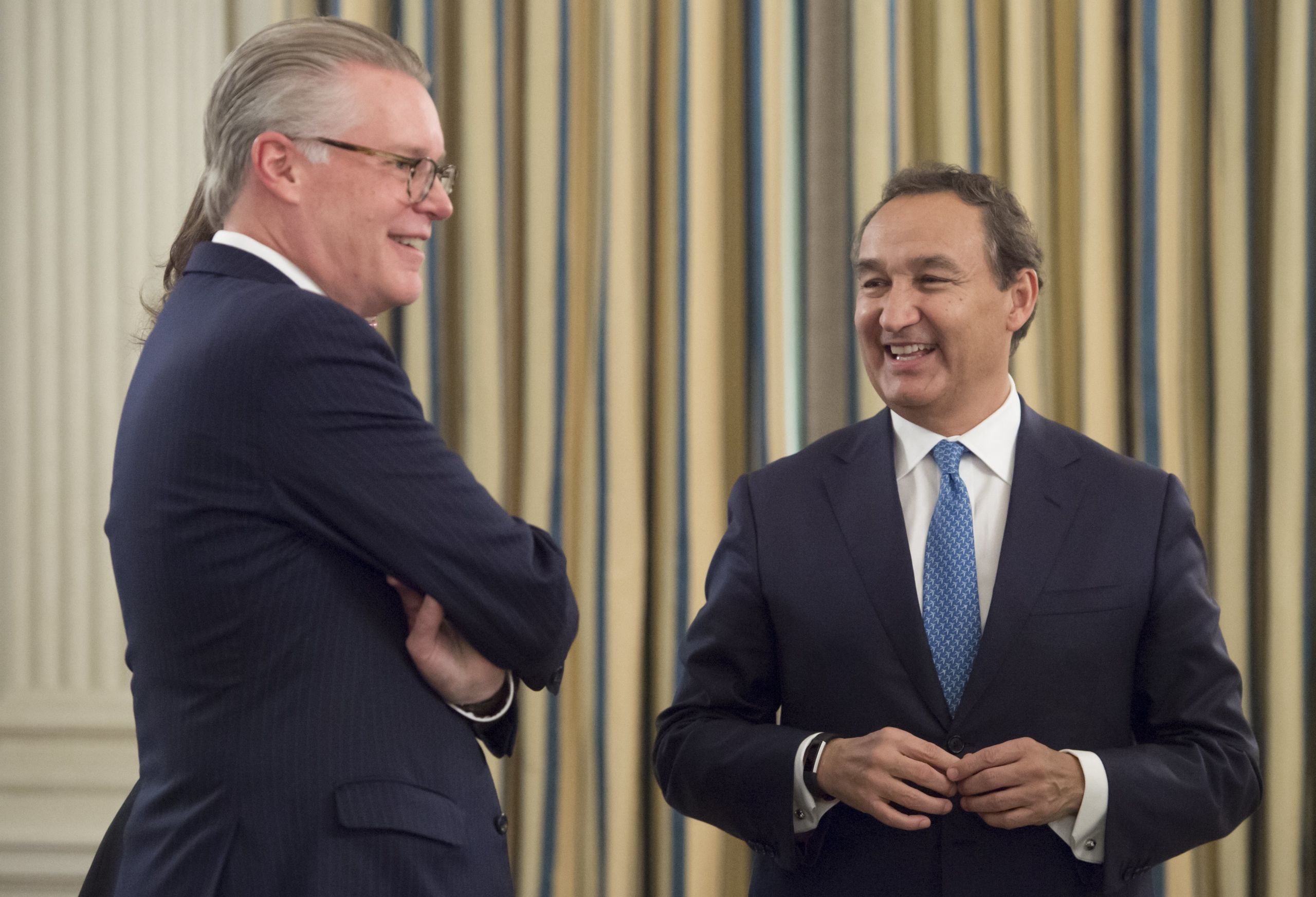
Airline companies in the United States have made billions of dollars in profits since their post-September 11 bankruptcies, and have lobbied for years against serious caps on their rapidly growing pollution. Nonetheless, they shamelessly lobbied for and received from Congress $29 billion in giveaways and loans for airlines. House Democrats had included a groundbreaking provision that would have made the aid conditional on airlines achieving carbon neutrality, but this position was abandoned in Senate negotiations.
The stimulus also included an especially egregious bailout for the private jet industry, with no fuel taxes or excise taxes for the rest of the year and billions in loans and loan guarantees.
It’s likely that air travel and pollution are going to surge again once travel restrictions are lifted – and that’s a big problem. Other sectors of the economy are projected to dramatically cut emissions by 2050, but aviation is projected to keep growing – meaning that unless the kinds of conditions House Democrats advanced are enacted soon, aviation could even become the single biggest emitting sector.
And it's not as though the airlines' failure to do the right thing on climate is because they have focused all their energies on protecting public health during the pandemic. U.S. airlines have continually refused to collect passenger data that would aid in contact tracing, despite repeated appeals by the Centers for Disease Control and Prevention (CDC) since 2005.
Airlines have justified their bailout by saying the grants will go to protect jobs. But, as a brilliant op-ed by Richard Squire in the Washington Post details, the airlines could have renegotiated their debt to big banks or entered Chapter 11 bankruptcy instead (as they did after September 11) – which allows companies to keep operating and paying their workers during an unanticipated revenue shortfall while deferring or restructuring debts. Congress could have dedicated additional funds to directly help workers as necessary. Instead, the bailout model for U.S. airlines will use taxpayer funds as an effective subsidy for airline creditors.
Indonesian Illegal Loggers
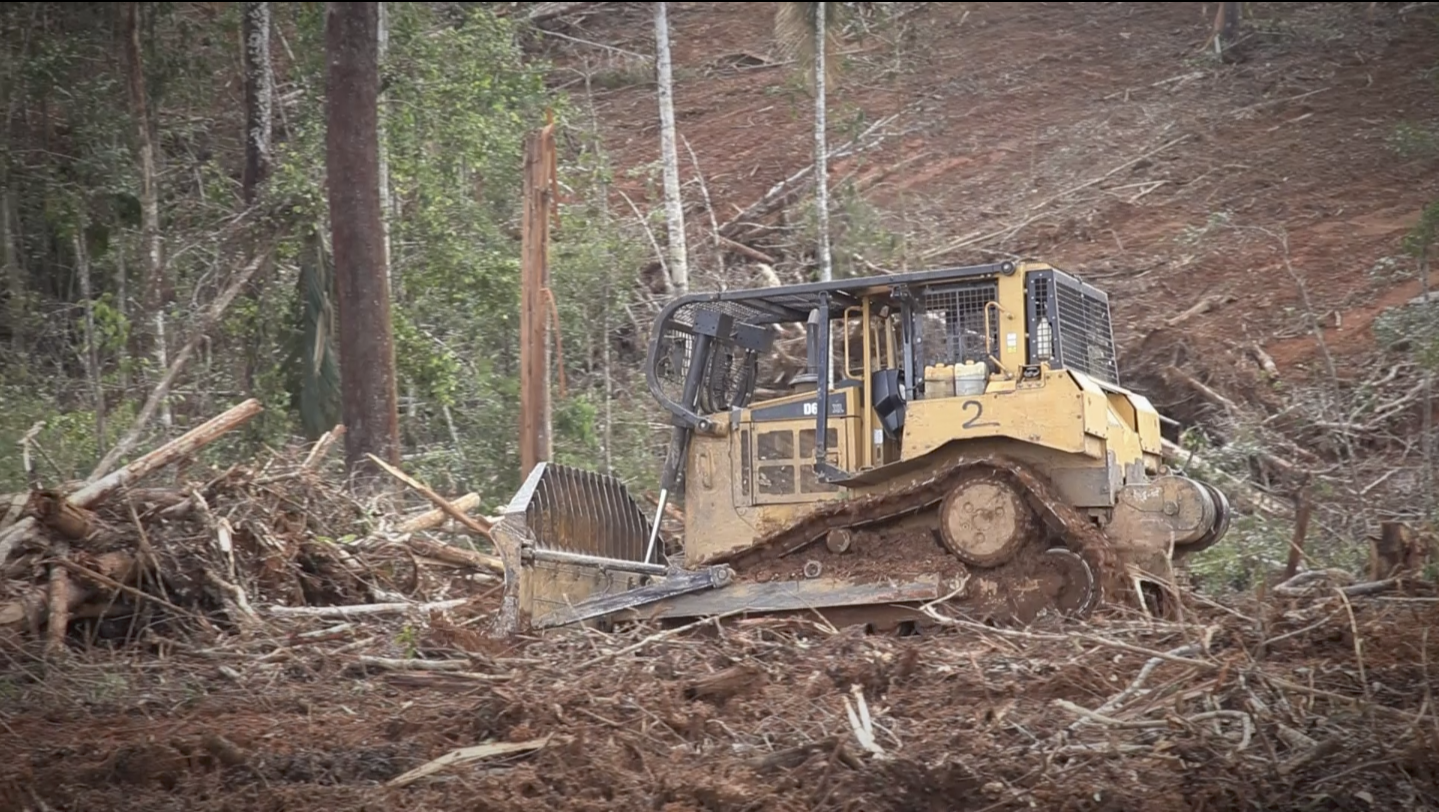
Indonesia has begun to crack down on illegal logging in recent years, a critical step for a country whose forests and peat store around 28 billion tons of carbon, more than three years of total global emissions from fossil fuel, and are home to rapidly diminishing populations of orangutans, tree kangaroos, and other endangered species. One critical step in curtailing illegal logging was requiring certification that wood was produced legally.
But, as Hans Nicholas Jong reported in the conservation news outlet Mongabay, Indonesia’s Trade Ministry on March 26 revoked these rules in response to lobbying from the furniture and logging industries, who have been pushing to end the restriction for years. Trade Minister Agus Suparmanto justified the decision as a way to boost timber exports that have declined because of the coronavirus-fueled economic slowdown. However, although the policy change is dangerous for the environment, it probably wins the prize for the most self-defeating act of coronavirus profiteering in the world: the Indonesian timber industry’s access to international markets is largely dependent on its ability to show that its wood is logged legally.
Indeed, the regulation in question came about largely because Indonesia wanted to ensure its products could be sold abroad, and Europe used the certification as its legal basis for allowing the sale of Indonesian wood. The EU delegation has already raised the possibility that the policy change would affect the entire functioning of EU-Indonesia timber trade. The United States also bans import of illegally logged wood through its Lacey Act. China is an even bigger market for Indonesian wood, buying $3.7 billion worth of products in 2018. In December 2019, China banned imports connected to illegal logging, a system that is scheduled to be implemented July 1. As recently as September, Indonesia’s government had seen the Chinese ban as a potential boon to its timber industry because Indonesia was able to provide legally-sourced wood. “If they start banning [illegal wood], we will be flooded [with orders],” a Trade Ministry spokesperson said in September. “If we don’t implement the SVLK system when China demands it, we will no longer be able to feed the Chinese market.”
The Fossil Fuel Industry
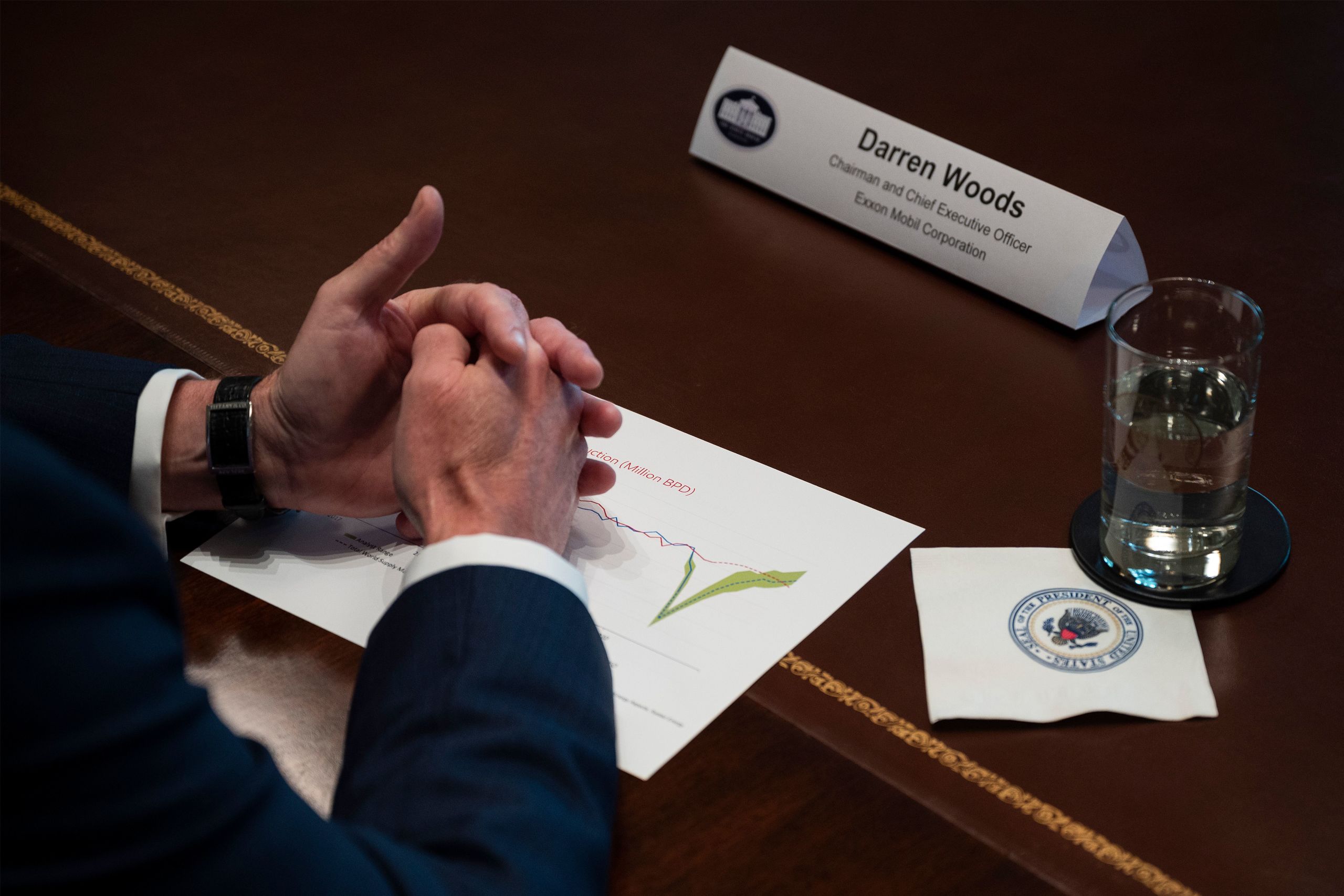
The American Petroleum Institute, the lobbying arm of oil industry majors like Exxon Mobil and Shell, asked President Trump on March 23 to suspend environmental regulations because of the coronavirus. Within three days, Trump’s EPA did just that, saying it would stop enforcement of a wide range of air and water rules – even for facilities that were continuing to operate and profit during the coronavirus pandemic. And meanwhile, builders of the Keystone pipeline rushed workers in for construction ahead of planned quarantine restrictions. Of course, coronavirus is just the latest excuse from the Trump administration for its comprehensive gutting of America’s most basic protections from destroying wetlands to rolling back protections.
In negotiations around getting its share of the bailout, the U.S. coal industry has not only pushed for deregulation on environmental protections and cleanups of former mines, but has even tried to slash its obligations for health assistance to victims of black lung disease. This effort has persisted despite the looming threat that black lung disease (from historic coal pollution) poses to thousands of miners at high risk of coronavirus. The coal industry is also still trying to force miners to work in crowded conditions despite evidence indicating that these coal mines are extremely contagious.
Another arm of the fossil fuel industry – plastics – has also sought to take advantage of the crisis to protect its profits, fear-mongering and citing dubious science to rollback hard-won plastic regulations across the country. More than half of all the plastic ever made was produced in just the last 15 years; only nine percent gets recycled and too much of the rest ends up as pollution in our rivers and oceans.
Many jurisdictions around the world have started to limit plastic bags and straws. But the plastics industry has taken this opportunity to re-up their efforts to push their products on people, publishing op-eds and talking points calling reusable shopping bags “virus-laden” and “petri dishes” – even as evidence suggests that washable, reusable cloth bags may be safer given the long time that coronavirus lingers on plastic. Their trade group has sought a federal government declaration that single-use plastic bans constitute a threat to public health, and succeeded in delaying or rolling back plastic regulations in Maine, Massachusetts, New Hampshire, and San Francisco.
Who's Doing the Right Thing

Some governments are prioritizing the environment even as they cope with the global pandemic. South Korea's ruling party announced a new climate manifesto and plans for a Korean Green New Deal as part of its response.
And China and Vietnam both appear poised to pass new laws and policies to end wildlife trafficking, addressing a root cause of the pandemic – like Ebola and HIV before it, the coronavirus is thought to have jumped from animals to humans who become much more exposed to zoonotic transmission when deforestation opens up new areas to human contact at scale.
Here are a few others who are getting the response right:
VW and BMW
While most of the European auto industry disgraced itself by using the coronavirus crisis as an excuse to weaken climate action, two companies stood up to their peers: Volkswagen and BMW. While both companies are far from perfect when it comes to their environmental record, let’s give some credit where credit is due: they issued statements making clear they support the 2020 climate standards. And VW is betting the company on a ramping up electric car production. For its part, in addition to ramping up electric car production, BMW has played a leading role in pushing tire and steel suppliers to dramatically improve their own climate performance.
European Commission President Ursula von der Leyen and European Green Deal Leader Frans Timmermans
While polluters in the United States and Indonesia cynically use the coronavirus crisis to weaken some of the same environmental protections needed to prevent future pandemics and reduce the impacts of this one – Europe’s leaders are going in the opposite direction. The European Commission, under the leadership of President Ursula von der Leyen and Executive Vice President for the European Green Deal Frans Timmermans, is going ahead with a public consultation on tightening the EU’s greenhouse gas target to a 50-55% cut in emissions from 1990 levels, significantly stronger than the current 40%. And ministers in Austria, Germany, Spain and elsewhere are calling for Europe to keep green development at the center of calls for a new Marshall Plan for Europe.
(Some) Palm Oil Companies
While Mighty Earth staff are staying at home, we’ve not stopped working, and neither have the satellites we use. Our Rapid Response deforestation monitoring program continues to monitor tens of millions of hectares of forests every month, and file alerts with companies in the palm oil, soy, and cattle industries to stop deforestation. Historically, the palm oil industry is responsible for more than 30,000 square miles of deforestation. But under pressure from campaigns, customers and financiers, almost all the leading companies have adopted strong forest and human rights policies, and cut deforestation from one million acres per year by more than three quarters.
But there are still a handful of rogue companies who try to evade the industry’s No Deforestation requirements, even during the coronavirus crisis, causing tremendous damage to ecosystems and the climate. One example is the Samling company. We caught this one company clearing almost 1000 acres of forest in 2019 alone, on top of more than 11,000 it had already destroyed.
Despite the stresses the coronavirus is putting on all companies, several large palm oil companies have acted even amidst the crisis, notably Wilmar, Louis Dreyfus, ADM, Bunge, and Cargill, which have recently stopped purchases from Samling in response to their deforestation. We hope companies like Avon, Mondelez, PepsiCo, and Unilever, which are still connected to Samling’s deforestation, will act quickly soon. While coronavirus is causing stress for a lot of companies, some are showing that it doesn’t have to get in the way of continuing climate action.
Youth Climate Activists
While lots of people are tut-tutting allegedly irresponsible youth for partying en masse during the early days of the coronavirus outbreak, the reality is that most young people are being responsible. The environmental movement in general (Mighty Earth included) has taken planned events online or postponed them.
"Today we young people save the elderly by not going out to protest. Tomorrow the elderly must save my generation by taking it to the streets with us."
Youth climate activists have suspended Fridays for the Future. But young people have been among those to recognize the potential inherent in the remarkable global response: “If one virus can wipe out the entire economy in a matter of weeks and shut down societies, then that is a proof that our societies are not very resilient. It also shows that once we are in an emergency, we can act and we can change our behavior quickly,” said Greta Thunberg.
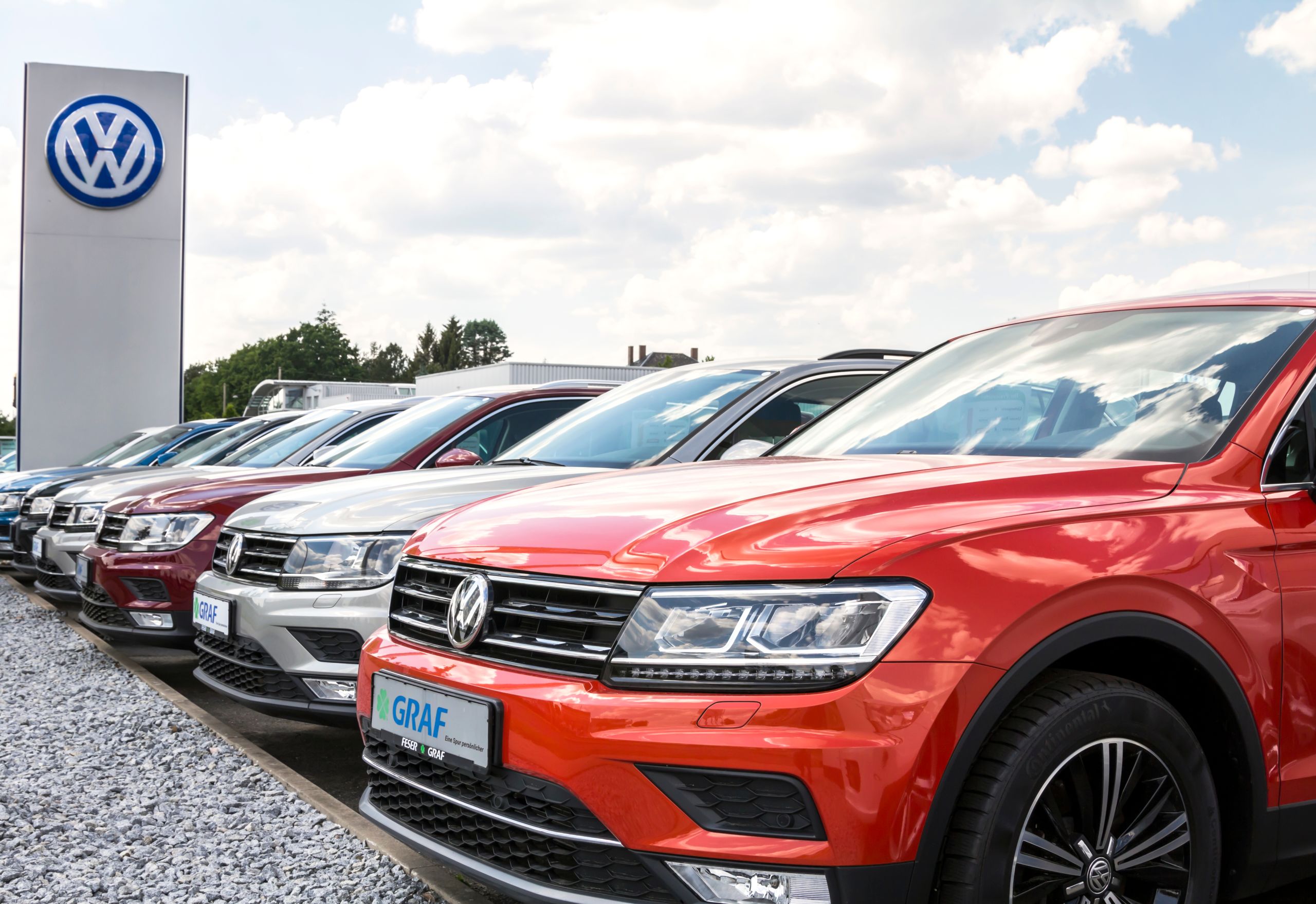
Both VW and BMW have released statements making clear both companies support the 2020 climate standards.
Both VW and BMW have released statements making clear both companies support the 2020 climate standards.
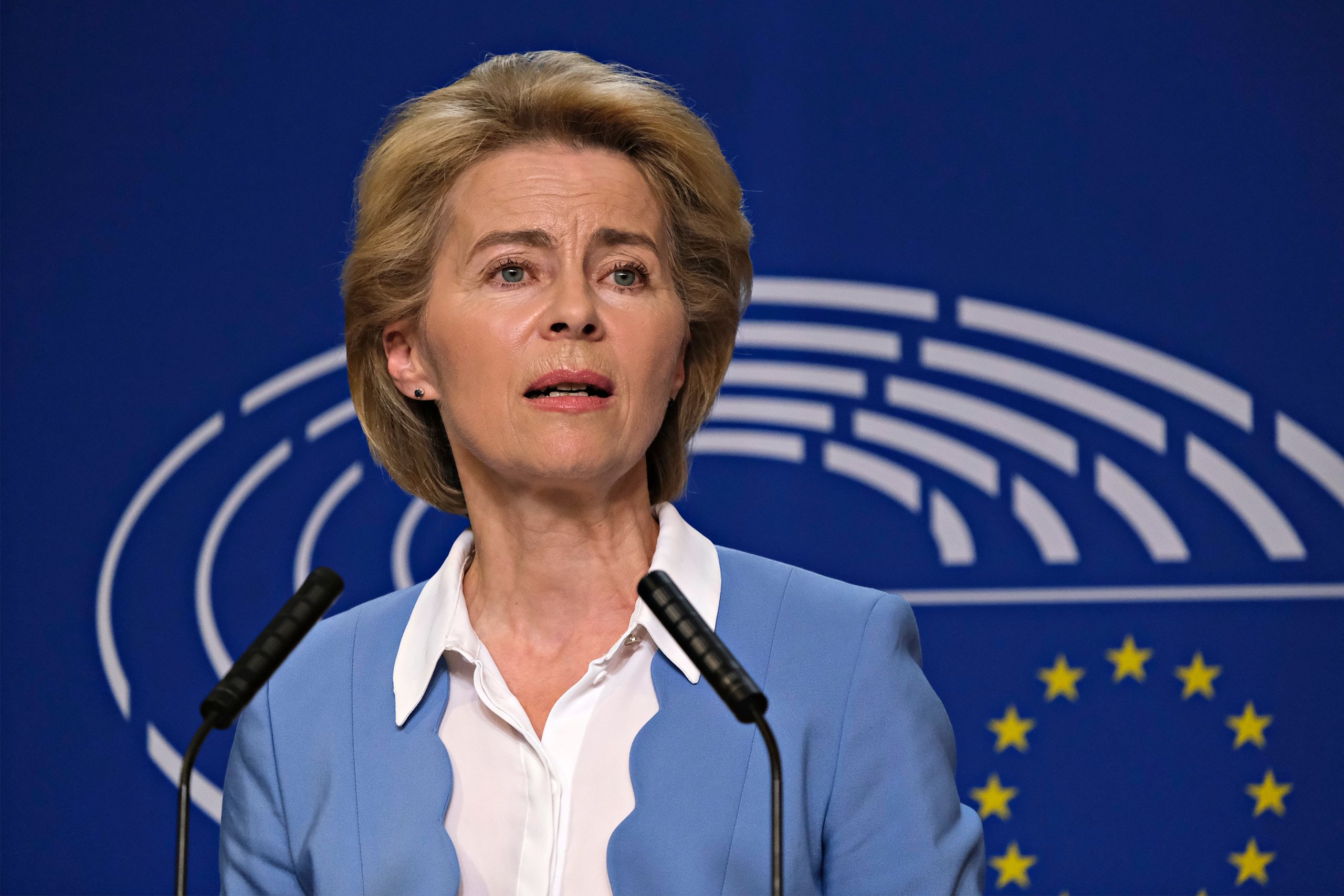
Led by President Ursula von der Leyen, the European Commission is tightening the EU’s greenhouse gas target to a 50-55% cut in emissions from 1990 levels.
Led by President Ursula von der Leyen, the European Commission is tightening the EU’s greenhouse gas target to a 50-55% cut in emissions from 1990 levels.
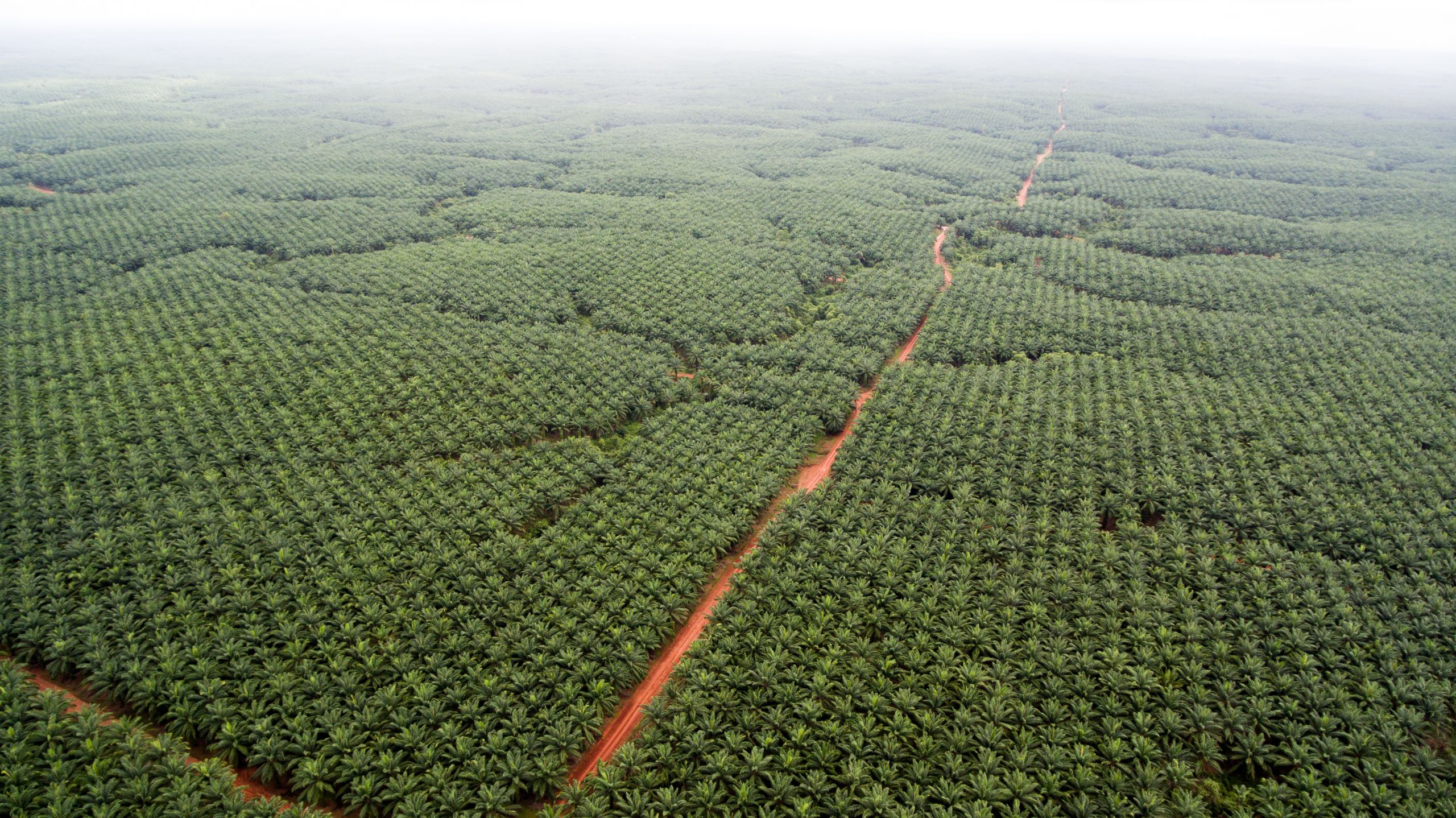
While Coronavirus is causing stress for a lot of palm oil companies, some are showing that it doesn’t have to get in the way of basic action to protect forests.
While Coronavirus is causing stress for a lot of palm oil companies, some are showing that it doesn’t have to get in the way of basic action to protect forests.
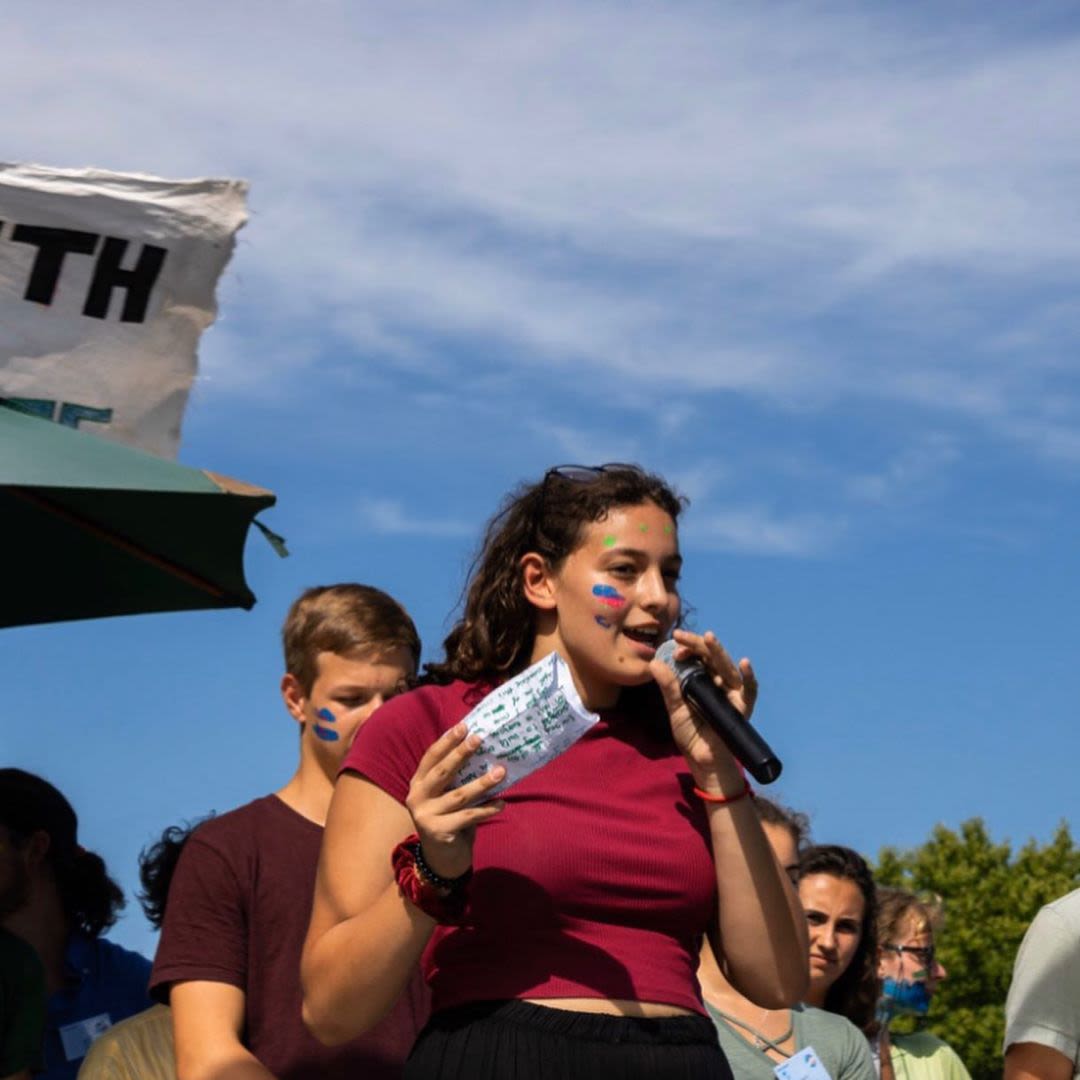
Young Greek climate activist Ariadne Papatheodorou. Papatheodorou has organized strikes in Greece to combat climate change.
Young Greek climate activist Ariadne Papatheodorou. Papatheodorou has organized strikes in Greece to combat climate change.
The coronavirus pandemic has upended our lives, sickened and killed thousands, and will reshape the global economy. But this crisis will pass, eventually, and the world we wake up to that day will be fundamentally changed by the virus and our response to it. We have a choice – now, as these critical decisions are being made – of how best to shape our future. The companies and officials profiled here are making those decisions.
The coronavirus profiteers featured in this report would continue the old, failed model that has brought us to the brink of climate catastrophe and mass extinctions.
Now is the time to build a new and better system. The reshuffling of the global economy is also an opportunity to break out of the path of dependence and vulnerability that has set in over the last fifty years. Then we can emerge from the shadow of the coronavirus into a society that is better prepared to care for its people, and protect the climate and Nature.
Mighty Earth is a global campaign organization that works to protect lands, oceans, and the climate. Mighty Earth is a fiscally sponsored project of the Center for International Policy, a 501(c)3 non-profit organization.

